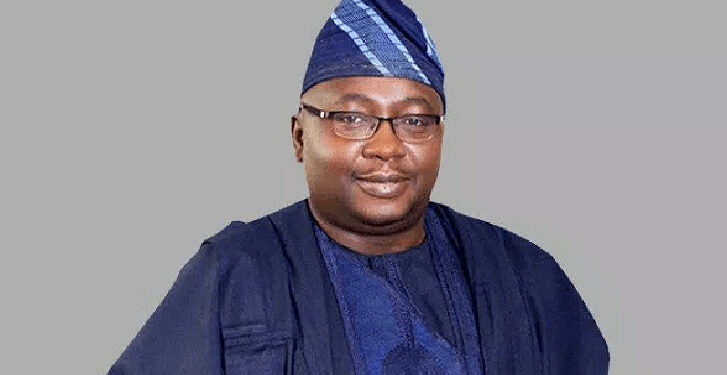Power sector privatisation a disappointment – FG
The Federal Government on Tuesday said it had plans to restructure the Transmission Company of Nigeria to align with the Electricity Act 2023 and the industry demands. The Minister of Power, Mr Adebayo Adelabu, said this in Abuja at the Ministerial Retreat on the Integrated National Electricity Policy and Strategic Implementation Plan. The retreat had […]

Minister of Power, Adebayo Adelabu
The Federal Government on Tuesday said it had plans to restructure the Transmission Company of Nigeria to align with the Electricity Act 2023 and the industry demands.
The Minister of Power, Mr Adebayo Adelabu, said this in Abuja at the Ministerial Retreat on the Integrated National Electricity Policy and Strategic Implementation Plan. The retreat had the theme, ‘Navigating and aligning on the path to enhanced electricity reliability’.
Adelabu stated, “It is time to restructure the TCN into two entities: the Independent System Operator (ISO) and the Transmission Service Provider (TSP). This restructuring must synchronise with the evolving landscape of state electricity markets, addressing calls for the decentralisation of the national grid into regional grids interconnected by a new higher voltage national or super grid.
“Essentially, we must ask whether the government should directly provide electricity nationwide or rather facilitate its provision by drawing comparisons with China’s centralised model and the United State’s diverse access models.
FG begins disability law enforcement in January
1% of GDP given out as tax waivers, incentives – FG
“Understanding how to handle subsidies, cross-subsidies, and aligning the Rural Electrification Agency’s role with emerging state markets are vital questions that demand stakeholder scrutiny for effective resolution.”
The minister said that for the country to increase its Gross Domestic Product to $1tn by 2030 as projected by President Bola Tinubu it must massively increase investments in electricity.
Adelabu said the Federal Government must work with state and local governments to increase the coverage and distribution of electricity across the country.
He noted, “Certain observable aspects within our sector require attention. These include the poor track record in contracting, contract management, and adherence to contractual obligations, in some cases, even by design.
“With impartial examination, it is evident that these identified factors erode confidence in the viability of the sector and pose fundamental challenges of inadequate capitalisation and limited access to funds for the diverse players along the energy value chain, from gas supply to electricity distribution.”
The minister said a major issue in the power sector was the pricing of gas utilised by Generation Companies (GenCos) in dollars describing it as a huge volatile variable that affects the pricing of electricity for end users.
He advised, “A preferable option was to ensure that gas utilised by the GenCos is traded in naira so as to manage the foreign currency-related inflationary trends that challenge the application of the Multi-Year Tariff Order (MYTO) methodology.
“We must find ways and means to pursue domestic gas policies and incentivise stakeholders for the supply of gas for inland use in electricity supply; other industrial activities and conversion to compressed natural gas and liquefied petroleum gas for transportation and domestic uses respectively.”
According to him, one of the major deliverables from the policymaking process is a viable method for establishing a sustainable capital investment programme around gas processing and transportation infrastructure.
“We must be forthright and passionate about our industry while remaining objective in finding the necessary solutions to propel us forward, establishing a credible policy framework for reliable electricity in the country,” he added.
Meanwhile, the Minister of Finance and Coordinating Minister of Economy, Mr Wale Edun, said power was one of Tinubu’s priority areas.
According to him, 40 per cent of the population do not have access to electricity, which he said was unacceptable to the President and other stakeholders.
He stated, “10 years ago, there was a privatisation exercise, but it has underwhelmed and underperformed and the results have been disappointing, so it is important that those stakeholders are part of the conversation and solutions.
“In addition to all other options that we have for providing electricity, we now have an array of options with renewable energy; green energy. What we want to see is a solution of providing power and growing the economy rapidly and inclusively.”
Earlier, the Permanent Secretary, Ministry of Power, Mr Temitope Fashedemi, said the retreat was for stakeholders to sit together and chart a way forward to achieve the KPIs given to the minister.
Fashedemi said participants at the retreat were drawn from across the value chain of the power sector as well as other sectors of the economy that align with the sector.
“It is, therefore, expected that the outcome of the retreat will form the basis of the development of the new integrated national electricity policy and its strategic implementation plan, which will guide other reforms the minister has for the sector,” he added.
